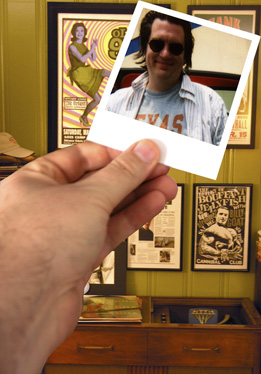 We are talking now of summer evenings in Knoxville, Tennessee in the time that I lived there so successfully disguised to myself as a child.
We are talking now of summer evenings in Knoxville, Tennessee in the time that I lived there so successfully disguised to myself as a child.
So begins one of my favorite book, "A Death in the Family," by James Agee, winner of the Pulitzer Prize for fiction in 1958. Agee was a tortured genius haunted by the death of his father when James was 6, and this novel, published posthumously after his death of a heart attack at age 45 in 1955, is the work of a writer in peak form.
Or so I thought. I read today in The New York Times of a "restoration" of Agee's work to it's original form.
When Agee died, he left a hand scribbled manuscript of a novel that was almost finished. The handwriting was "so crabbed that psychics should have been called in to decode it." David McDowell, Agee’s protégé and literary executor, cobbled together the version of the book that is known and loved today, a lyrical autobiographical account of Agee’s first six and a half years, ending with the death of his beloved father in a car crash.
Scholar Michael A. Lofaro spent years shuffling through the original manuscript to create "A Death in the Family: A Restoration of the Author’s Text," by "tracking down the variants, squinting at Agee’s gnarled handwriting, deciphering illegibilities, comparing drafts, speculating, emendating, annotating — and when it comes to his predecessor McDowell’s version, lacerating."
But was Lofaro able to improve on the original? Will Blythe, writing for The Times says yes:
"At last we have 'A Death in the Family' that appears closer to the author’s original intention. This tidying is good in its own right, but the main reason to celebrate the publication of this version is that it serves as a fresh reminder of the wondrous nature of Agee’s prose — unabashedly poetic, sacramental in its embrace of reality, and rhythmical as rain on a Tennessee tin roof."
I would like to heartily add an "amen" to the previous statement. Even without the novel, Agee would have been remembered for any of his many accomplishments. He was an accomplished poet and a well-regarded journalist who worked for Fortune and time Time in the 1930s. He may be best remembered for his collaboration with the great photographer Walker Evans on their book about the plight of Southern sharecroppers, "Let Us Now Praise Famous Men," but he is also considered the father of American film criticism, which he defined in his book, "Agee on Film." And, if that wasn't enough, he was the credited screenwriter on two classic films, "The African Queen" and "The Night of the Hunter."
I can't wait to read the new version of this old favorite. If you haven't spent time with Agee, seek out his work at the bookstore or library. Or even spend a moment with this overview from The New Yorker. He is an American original worth remembering.
Sunday, June 15, 2008
"A Death in the Family" Revisited
Posted by
Steve-O
at
11:01 AM
![]()
Labels: books, James Agee, photography, Walker Evans
Subscribe to:
Post Comments (Atom)

1 comment:
Just saw the Harper's take on Blythe's article at http://harpers.org/archive/2008/06/hbc-90003092. Good stuff ...
Post a Comment